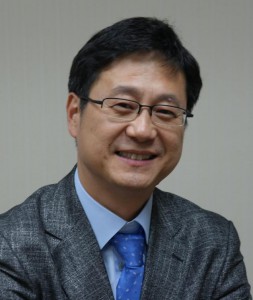Each week Emerging Markets ESG publishes an interview entitled, “Five Questions about SRI.” The interview features a practitioner’s insights about SRI in emerging markets and through Emerging Markets ESG shares this expertise with a wide global audience. The goals of Five Questions about SRI are fourfold:
- To collect a catalogue of examples of SRI in practice in emerging markets;
- To raise awareness about SRI in emerging markets;
- To reflect on what SRI in emerging markets means to practitioners; and
- To enable SRI practitioners in emerging markets to network with peers around the world.
This week’s interview is with Youngjae Ryu, CEO, Sustinvest, Seoul, South Korea.
Established in 2006, Sustinvest is the first SRI research & consulting institution established in Korea. Sustinvest is a think tank that helps align the decision-making on investment strategies of a company by discovering extra-financial risks and opportunity for sustainable growth with own expertise in ESG analysis. Sustinvest evaluates the ESG performance of listed companies in Korea using the ESGValueTM framework which was solely developed by Sustinvest and provides ESG analysis/ advisory services to approximately 1.3 billion won worth of SRI funds based on this evaluation system, as of December 2011. Youngjae Ryu is CEO of Sustinvest. He has 14 years of experience in the securities industry, with firms including Hyudai and Peregrine. He is a member of the Advisory Board, Committee of Win-win Index under the Win-win Growth Committee; a member of the Forum of Sustainable Management under the Ministry of Knowledge and Economy; research head of the Research Center on Sustainable Investment in KoSIF (Korean Sustainable Investment Forum); and a member of the Steering Committee of UN Global Compact. He is the author of several publications, including “Korean Socially Responsible Investment” (2010). He holds a BA and a MA in Political Science and Diplomacy from Hanyang University, South Korea as well as MBA from Ashridge Business School, UK.
Emerging Markets ESG: How would you define socially responsible investment (SRI)?
 Youngjae Ryu: Socially responsible investment is an investment strategy in which one analyzes not only the financial performance but also the ESG performance of a company in the long-term perspective.
Youngjae Ryu: Socially responsible investment is an investment strategy in which one analyzes not only the financial performance but also the ESG performance of a company in the long-term perspective.
Emerging Markets ESG: What distinguishes SRI from mainstream investment?
Youngjae Ryu: SRI is distinguished from mainstream investment in three aspects.
First, SRI has an investment horizon for at least 3-5 years.
Second, SRI considers ESG as a company’s potential risks; hence ESG factors are reflected in the investment process after a systematic and in-depth analysis.
Third, SRI regards a shareholder’s right as an asset and actively utilizes it.
These three aspects differentiate SRI from conventional investing.
Emerging Markets ESG: Which extra-financial theme – environmental, social or governance – is the most challenging for companies in Korea to manage?
Youngjae Ryu: It’s ‘social.’ Korea has high societal interests in companies, especially regarding conflicts between labor and management, arms-length transactions and the win-win growth issue between large companies and small and medium-sized enterprises. The labor problems, in particular, are difficult to solve due to a huge gap between the perspectives of managers and workers as well as between the perspectives of regular and non-regular workers’ interests.
Emerging Markets ESG: Which extra-financial theme – environmental, social or governance – is the most challenging for investors in Korean companies to analyze?
Youngjae Ryu: It’s ‘governance.’ Investors are highly interested in the governance problems of Korean conglomerates. Important issues include management practices such as the absolute power of the controlling shareholder, opaque succession plan for sons of the controlling shareholder, granting all contracts to subsidiary companies, etc.
Emerging Markets ESG: Which drivers are promoting improved quality and quantity of ESG reporting in Korea?
Youngjae Ryu: At this moment, the Korean Stock Exchange is planning to promote the disclosure of ESG performance of listed companies. Once this is adopted, the ESG reporting standards of Korean companies are expected to improve significantly. Another driver for ESG disclosure is the SRI funds expansion plan of the National Pension Service (NPS) – the world’s fourth largest pension fund with 350 trillion Won ($311bn) in assets under management.